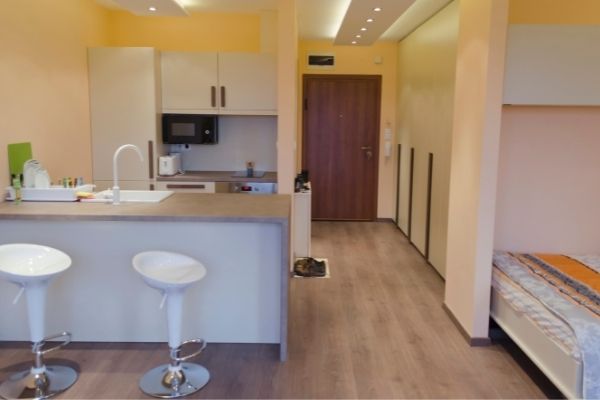Typical industry sectors include but are not limited to the following:
-

Offices
-

Pubs and Restaurants
-

Hotels
-

Care Homes
-

Factories
-

Caravan Sites
-

Serviced Accommodation

Frequently Asked Questions
-
I’ve been told my clients are out of time and no longer able to claim?
If a property was purchased prior to April 2014, there is no time restriction for retrospective claims which means that you can start reviewing your client’s property costs today and potentially unlock a significant tax benefit.
If a property was purchased after April 2014, there could be a 2 year time deadline from completion to claim these allowances however, this 2-year deadline doesn’t always apply as it’s subject to a number of factors relating to a purchase. We actively encourage all transactions to be reviewed as quite often Capital Allowances can be claimed after 2 years have passed.
If clients have carried out property improvements to a freehold property, or even a property that’s leased, there is no time restriction in claiming. -
What is so important about the legislation change in April 2014?
The changes in 2014 effectively changed the way in which Capital Allowance claims against the majority of commercial property transactions were calculated and also enforced a time deadline to claiming.
This meant that the tax benefit available was now exposed to being lost and put additional pressure on those involved in property transactions. Accountants and solicitors were forced to include Capital Allowances into their routines and take a proactive approach to avoid the risk of negligence claims.
-
I’ve always thought claiming Capital Allowances increases a Capital Gains Tax bill when clients come to sell?
The most common misconception is the view that any savings achieved by claiming Capital Allowances will be cancelled out later by an increased chargeable gain (if the property is ever sold).
This is not true. Section 41 TCGA 1992 specifically provides that it is not necessary to deduct any Capital Allowances from the cost of an asset for capital gains purposes, so it is not possible for a Capital Allowance claim to create or increase a chargeable gain. Capital Allowance claims on Land & Building costs does not reduce the Balance Sheet value.
-
Why would my routines not have already maximized the available Capital Allowances?
There’s no doubt accountants have an established routine for assessing Capital Allowances and therefore it’s important to stress that we’re not questioning their or your ability. We look to enhance the level of Capital Allowances claimed by introducing additional disciplines that add value to accountants’ work.
For example, a survey is completed on the property to identify items that are not visible within the paperwork and sit within Land & Buildings on the Balance Sheet (not Fixtures & Fittings). Stage Payments for leasehold improvements or property builds are a good example of where our process creates the required detail to maximize Capital Allowances.
-
Will this cause a problem with HMRC?
Capital Allowances are part of standard business routines and therefore claimed each year against cost clients incur to operate. HMRC does not take issue with Property Embedded claims on the basis we adhere to guidelines and the legislation applicable to each case.
Capital Allowance Review Service maintains an experienced multidisciplinary team of experts ensuring a solid track record and reputation are protected.
-
The embedded fixtures & fittings have been depreciated?
Depreciation and Capital Allowances are not related therefore have bearing on a Capital Allowance review.
-
We were not given detailed invoices; will this stop our client from claiming?
Confirming proof of expenditure can be done in a number of ways. Not having detailed invoices is one of the key reasons Capital Allowance Review Service is in operation. Our process creates the detail required in a way that satisfies HMRC protocol.
-
I receive information about Property Embedded Capital Allowances a lot but I’m just not sure whether I’m comfortable drafting in a 3rd party?
This simply comes down to trust. This is why our approach over the past 19 years has been tailored to complement existing accounting routines giving accountants more control/input. Clients are only contacted when the advisors we support are happy for us to do so.
-
How can we avoid our client’s from being approached directly by Capital Allowances sales methods or other competing accountants?
In building a trusted partnership it enables us to essentially become a Capital Allowance division within each of the accountants we support. We provide accounting checklists that help accountants to easily highlight those clients that could benefit. This enables accountants to take a proactive approach and review a client’s position via internal discussions before presenting it to the client.
-
We’ve heard of others that haven’t had a good experience as well as fees that were not transparent?
Although we have operated for many years with testimonials on our website, we have recently started publishing Google Reviews. This is proving to be a great way of giving clients and advisors some reassuring reading.
We maintain that a “no win no fee” fee structure with no upfront costs gives clients the peace of mind that they are not exposed to any risk is progressing a review. It’s just as important that both the long-term and short-term benefits are considered when reviewing the client’s tax profile and cashflow. This is completed at the start of our process as to how the tax benefit is crystalized through Capital Allowances can differ from one case to the next.
-
How do I know which clients could benefit?
We would encourage you to complete a review if you answer yes to both of the following conditions:
- Has a client spent significant capital buying and/or improving a commercial property that is in use for the purpose of trade or rental business?
- Is the entity that spent the capital paying or liable to UK tax i.e. an Individual, a Company, Partnership, Overseas Landlord, etc?
The value of tax relief depends on each individual scenario and therefore it’s important our initial review confirms if a claim is available, possible, and of benefit to a client’s tax profile.
Contact our specialist team to find out if we can help you to build a robust claim and reach the maximum level of tax savings available for your clients.
Latest News
-
 15 November 2024
15 November 2024Specialist CA Tax Advice for Accountants
At CARS, we’ve been providing expert support and advice for accountants for years. We understand that in the fast-paced world of accounting, keeping up with every aspect of tax legislation can be a daunting task. For accountants, Capital Allowance (CA) tax relief is an area that holds significant... -
 8 November 2024
8 November 2024Understanding Research and Development Allowances (RDAs) on Capital Expenditure
Innovation is a beacon of progress, driving companies toward success and relevance. The pivotal role of Research and Development (R&D) in fostering innovation is recognised and, as a result, incentives are offered to businesses through mechanisms like Research and Development Allowances (RDAs). Understand...
Contact Us
Our expert team are here to help answer any of your capital allowances questions or enquires you have about your commercial property.



